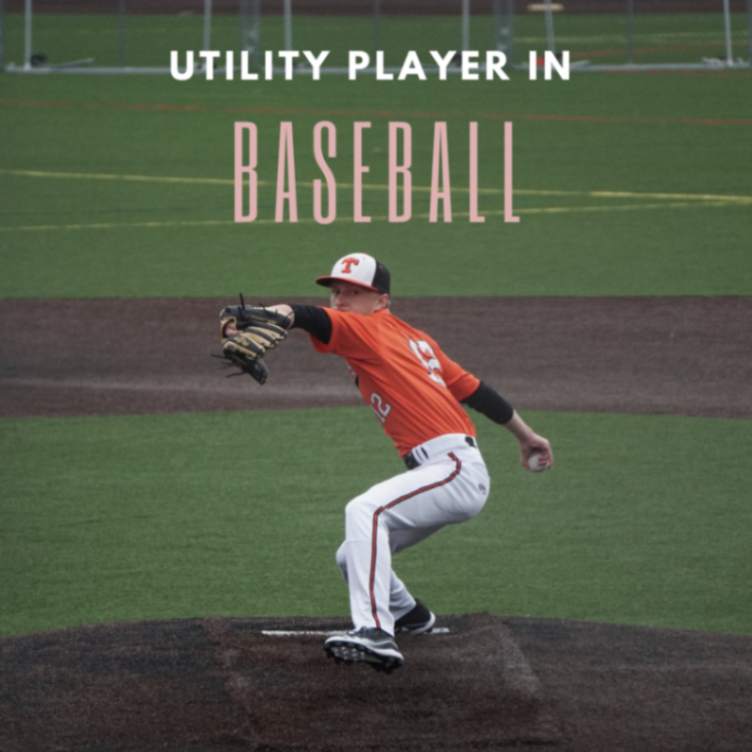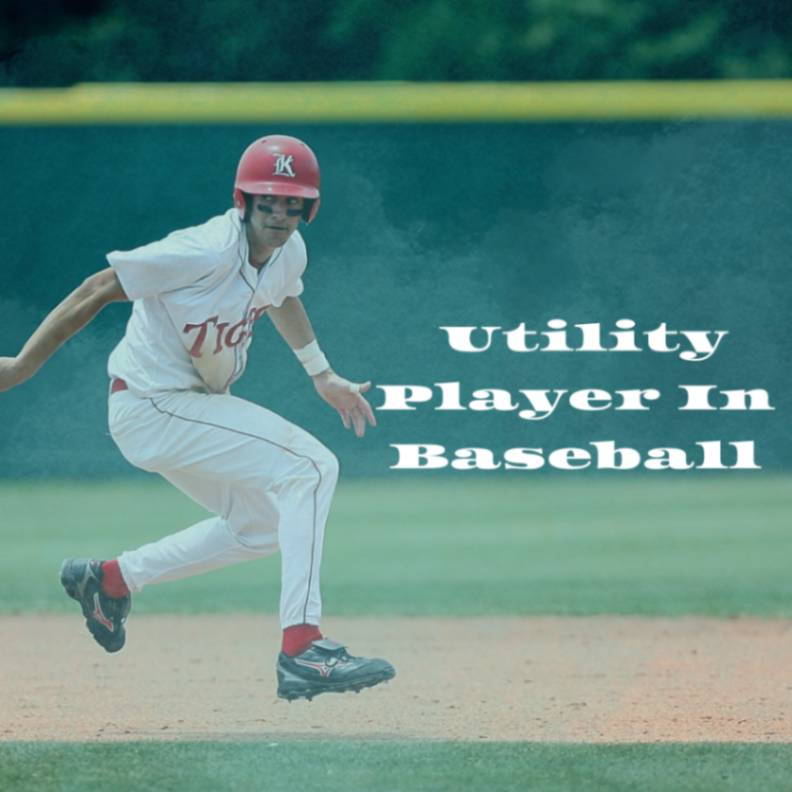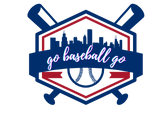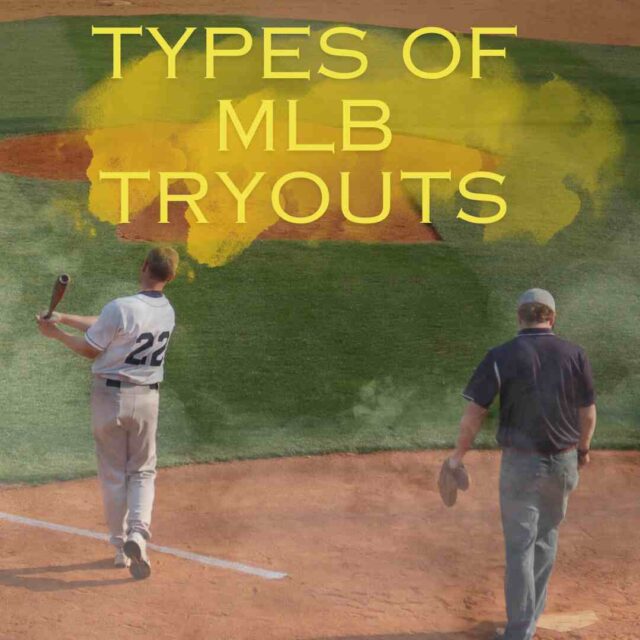In baseball, most fans focus their attention on the star players like the powerful cleanup hitter or lighting fast leadoff man. However, championships are not won by individuals alone. Every successful team needs a group of versatile, adaptable players that provide depth and flexibility to the roster. These are the utility players, who can play multiple positions both in the infield and outfield.
In this blog, we’ll explore the role of utility players in baseball, why they are so valuable to teams, and some of the greatest utility men in MLB history.

Defining the Utility Player in Baseball
A utility player is a baseball position player who can play multiple defensive positions adeptly. Unlike starters who play the same spot every day, utility men move around the field based on matchups, injuries, or the manager’s strategy.
The main traits that make a great baseball utility player include:
- Versatility – Ability to play LF, RF, 1B, 2B, 3B, and SS at a high level
- Adaptability – Quickly adjust to new positions and lineups
- Situational awareness – Understand game scenarios and make smart plays
- Contact hitting – Get on base and advance runners from any spot in the lineup
- Mindset – Embrace unpredictable playing time and sporadic at-bats
Utility players need to be true baseball rats willing to do whatever it takes to help the team win on a given day or situation.
The Value of Utility Players in Baseball
So why are utility players in baseball so valuable? Here are some of the key benefits they provide:
- Roster depth and flexibility – Allow managers to optimize matchups and rest regulars
- Fill-in starters when injuries occur – Crucial to avoid a major drop-off in production
- Give platoons and pinch-hitting options – Create and exploit hitter/pitcher advantages
- Late-inning defensive replacements – Insert superior gloves and arms
- Break up same-handed hitters – Split up lefties or righties in the lineup
- Morale boosters – Accept and thrive in limited playing time roles
- Protection from slumps – Replace struggling starters until they rebound
The versatility of utilities gives managers creative options to configure their lineups, matchups, and in-game moves. Great utility players have a team-first mentality and never complain about their sporadic playing time. Their adaptability and performance in part-time roles make them invaluable to successful baseball teams.
Notable MLB Utility Players In Baseball Throughout History
Let’s look at some standout MLB utility players in baseball throughout history and their notable accomplishments:
- Ben Zobrist – 2016 World Series MVP, played 7 positions in career
- Brooks Robinson – 16x Gold Glove winner played LF, 3B, 1B, and 2B
- Jose Oquendo – Played all 9 positions in career, mastered the hidden ball trick
- Chone Figgins – Started at 6 positions, batted .291 in a key utility role on the Angels
- Scott Spiezio – 13-year career, provided WS-winning HR for Angels in 2002
- Don Money – 4x All-Star, consistent 20+ HR and solid defense annually
Though they don’t usually get MVP votes or make the All-Star team, great utility players like Zobrist, Robinson, Figgins, and Oquendo have been crucial contributors to World Series-winning teams throughout MLB history.
Keys to Being an Effective Baseball Utility Player
To succeed in the challenging utility player role, there are several keys:
- Embrace versatility – Be willing to play any position on the field. The more flexibility the better.
- Maintain focus – Stay mentally engaged despite irregular playing time. Always be ready.
- Study opponents – Know pitcher and hitter tendencies to get any edge.
- Simplify your swing – Use a compact swing without much movement to hit well off the bench.
- Play stellar defence – Fielding skills help utility players maximize innings played.
- Communicate with coaches – Ask for extra defensive reps in practice at each position.
The baseball utility role certainly has its challenges. But players who thrive on adaptability, preparation, and rising to any challenge can become heroes for their team.
Benefits of Being a Utility Player
Several advantages come with being a utility player in baseball:
- Get to play multiple positions – This improves your overall baseball skills and versatility as an athlete. Developing competency at several positions expands your game.
- Additional playing time – Utility players frequently enter games as substitutes and pinch hitters, leading to more game action than other bench players.
- Lineup flexibility – Coaches can plug utility players into different spots in the batting order to optimize matchups. Their versatility offers more lineup options.
- Roster value – Utility players allow teams to carry more pitchers and specialists since they fill multiple roles. This added roster flexibility is a key benefit.
- Leadership opportunity – Utility players often take on leadership duties to unite the team. Their team-first attitude sets an example.
In summary, baseball utility men get exposure to more positions while earning frequent playing time, optimizing lineups, and bringing versatility that provides strategic benefits.

Using Fantasy Baseball Utility Spots
The idea of utility players in baseball also exists in fantasy baseball leagues. Most leagues require each fantasy roster to have a “UTL” (utility player) spot. This requires fantasy GMs to find players with multi-position eligibility to maximize flexibility.
Here are some keys to effectively use fantasy baseball UTL roster spots:
- Target hitters that play 1B, OF, 3B – These positions carry the most utility flexibility.
- Acquire players who recently gained new position eligibility – Makes them more versatile.
- Use to rotate backups into your lineup at their optimal matchups.
- Provides insurance for injuries at thin positions like MI or CI.
- Allows you to stockpile the best players available despite already filling positions.
Fantasy baseball utility spots are the lifeline GMs can use to optimize their rosters. Identifying versatile players to slot in helps immensely when managing injuries, off-days, and slumps.
The Underappreciated Baseball Role
Utility players in baseball are the glue that holds baseball teams together. Without their versatility, adaptability, and situational skills, clubs would struggle to overcome injuries, matchups, days off, and other hurdles during a long 162-game season.
While often underappreciated, great utility players in baseball are a manager’s secret weapon. Their flexibility and timely contributions make them indispensable to team success. So next time you watch a baseball game, make sure to pay tribute to these utility warriors. They may not grab the headlines, but they quietly make winning possible.
Conclusion
Baseball is a team sport that requires much more than 9 quality starters. Having versatile utility players that offer depth, flexibility, and options for managers is crucial to team success.
Utility players in baseball need to have an adaptable mindset focused on helping the team win in any way on a given day. While often overlooked, great utility players thrive in their role and deliver in key situations.
Every championship baseball team leans heavily on its utility players throughout the season. Baseball is better when super utility guys like Ben Zobrist are playing an integral role.
FAQs About Utility Players In Baseball
- What positions make up a utility player in baseball? Utility players can play a mix of infield positions like 1B, 2B, SS, and 3B as well as corner outfield spots in LF and RF. True utility players in baseball can handle any spot.
- How are fantasy baseball utility spots used? Fantasy GMs use utility roster spots to maximize position flexibility. Multi-position eligible players in a UTL spot allow daily lineup optimization.
- What’s most important for a baseball utility player? Versatility and adaptability are most vital. They must excel defensively at multiple spots and hit well off the bench with sporadic at-bats.
- Do utility players in baseball complain about playing time? No. The best embraces the role and are always ready when called upon. They have a team-first mentality.
- How are utility players in baseball used during MLB games? Managers use them as substitutes, pinch hitters, defensive replacements, injury fill-ins, platoon partners, and lineup flexibility.
- Who are some all-time great MLB utility players? Some of the most notable utility players in MLB history include Ben Zobrist, Jose Oquendo, Chone Figgins, Brooks Robinson, and Scott Spiezio.
- What makes a good fantasy baseball utility player? Multi-position eligibility, consistent at-bats, good matchups, and insurance for injuries at thin roster spots.
- Are baseball utility players less talented than starters? Not at all. Most are very talented but embrace supporting the team however needed. Some like Ben Zobrist even win MVP awards.
- Do utility players play every game? No, but they still contribute regularly off the bench and often end up with 400+ at-bats and ample play time when giving starters rest.
- How can youth players develop into utilities? Master multiple positions through practice reps. Build an adaptable mindset focused on team success over personal stats. Develop sound situational baseball skills.
- What is a super utility player in baseball? A super utility player is someone capable of playing all positions on the field competently. This elite versatility gives teams an advantage.
- Do utility players in baseball play every game? No, but they contribute regularly off the bench and often end up with 400+ at-bats while resting starters and filling many roles.
- What’s the value of a utility player in fantasy baseball? Their multi-position eligibility provides critical roster flexibility to use backups and optimize daily lineups.
- Were there utility players in early baseball history? Yes, even decades ago teams utilized players capable of playing various positions when needed to cover for injuries and rest starters.
- Do baseball utility players have lower salaries? They usually earn less than starters, but top super-utility players still command significant salaries based on WAR and versatility value.
- How should youth players train to become utility players? Take reps at all positions, learn to adapt swing to sporadic at-bats, embrace a team-first attitude, and become a student of the game.
- Can utility players in baseball win major awards? Yes, Ben Zobrist won the 2016 World Series MVP Award largely thanks to his defensive flexibility and ability to play multiple positions.
- What’s more important for a utility player – hitting or defence? The ability to play above-average defence at many spots may be slightly more vital, but being at least an average hitter is also key.
- What is a utility player in baseball? A utility player is a position player who can play multiple defensive positions competently. This versatility allows them to fill various lineup roles as needed.
- What does UTIL mean in fantasy basketball? UTIL is shorthand for the Utility position in fantasy basketball. Just like baseball, players with multiple position eligibility can be slotted into the UTIL roster spot. This allows fantasy managers to optimize their daily lineups.
- What is UTL in fantasy basketball? UTL stands for Utility position in fantasy basketball. It’s a roster spot for a player who has eligibility at multiple positions, allowing for lineup flexibility.
- What does High A mean in baseball? High A refers to an advanced minor league level right below AA and AAA. High-A leagues feature prospects on the cusp of being MLB-ready within a year or two.
- What does utility mean in baseball? In baseball, utility refers to players that can competently play multiple defensive positions. This versatility makes them invaluable in optimizing matchups and providing depth.
- What is a utility player in softball? A utility player in softball is someone who can play several positions in the infield and outfield. This allows the coach flexibility in positioning and substituting players.
- What does UT mean in softball? UT is an abbreviation for Utility player in softball, referring to versatile athletes adept at playing several fielding positions as needed.
- What does UT mean in baseball? UT is shorthand for Utility players in baseball – position players skilled at playing multiple spots to provide roster depth and flexibility.
- What’s a position player in baseball? A position player refers to any defensive baseball player that fields a specific position – catcher, pitcher excluded. Examples include 1B, 2B, SS, 3B, LF, CF, RF.
- What does utility mean in softball? In softball, utility refers to players that can play several positions. This versatility gives the coach more lineup options and flexibility.
- What is a utility player in fantasy baseball? In fantasy baseball, a utility player refers to an offensive player with multiple position eligibility. This allows fantasy managers to optimize daily lineups.



